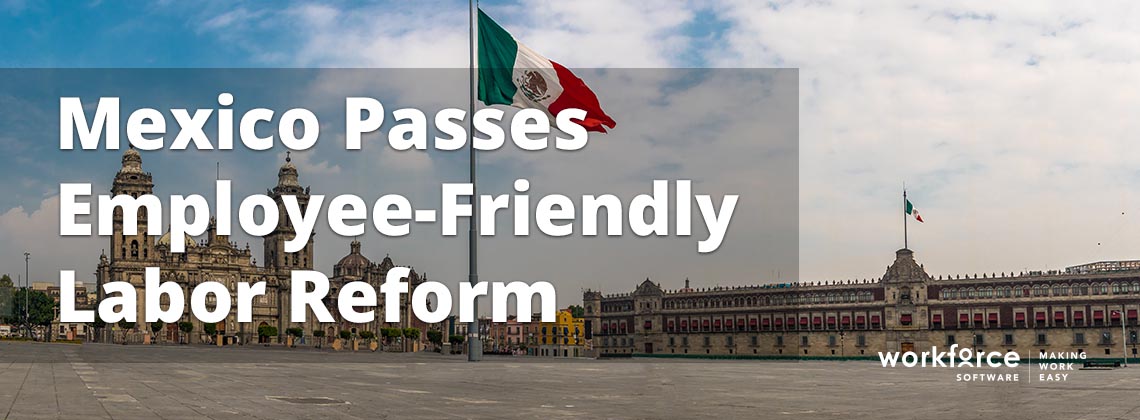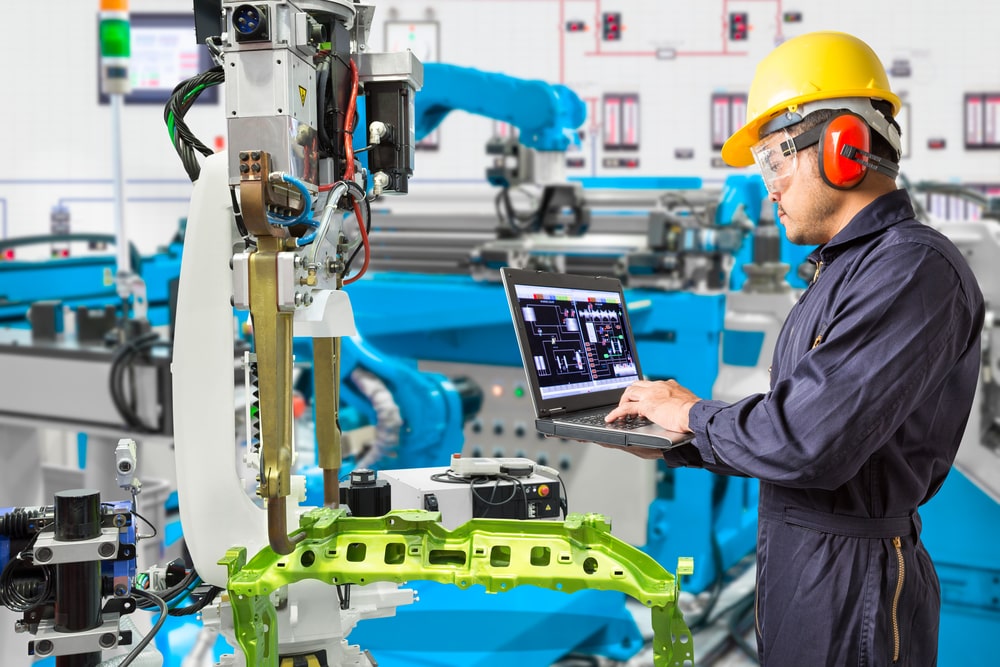Mexico Passes Employee-Friendly Labor Reform


David Barker
Director, Product Management – EMEA & APAC
It was a day of celebration for Mexico’s employees on May 1st , International Workers’ Day, as the country amended its Federal Labor Law to secure the right of Mexican workers to organize and enter into collective bargaining agreements. This positive step for Mexico’s workers could imply some important future shifts for employers and employees alike.

Why this new legislation?
Many unions in Mexico are largely controlled by the employer and do not represent the interests of the employees. These unions often sign collective contracts with companies before workers are hired at a worksite—and the employees have little or no input into the contract, which highly favors the employer.
The unions typically do not provide legal or other services to the employees, do not hold open elections, and often do not collect union dues. It is common business practice for the company to pay an annual fee to the union for “protection services” against other unions that might demand a collective bargaining agreement. Despite the growth in foreign investment, this has resulted in employee wages remaining low.
Digitalize Compliance Processes to Reduce Risk
Learn more effective ways to demonstrate compliance with the complex matrix of labor laws, while also keeping costs down and reducing risks.
Reshaping the System
In February 2017, a constitutional reform was passed to change the labor justice system through:
- Creating specialized labor courts
- Centralizing registration of collective bargaining agreements and union registration
- Requiring unions to prove that they represent a majority of a company’s workers before executing an agreement
- Guaranteeing free and secret voting at every stage of union life
However, these changes did not promulgate to the Federal Labor Law at that time. As a result, Mexico remained the only country in Latin America to not allow workers the right to organize and collectively bargain.
But 2018 brought hope for the future of Mexico’s workers when President Andrés Manuel López Obrador was elected on a platform of progressive labor reform and, during negotiations for the new United States–Mexico–Canada Agreement (USMCA), committed to adopt labor reforms as a condition for ratification of the treaty.

What does this mean for Employers?
Though this legislation proves to be a labor-friendly feat for workers in Mexico, companies operating in the country should prepare for significant changes in labor relations as these new laws will almost certainly lead to greater independent unionization of workers. Union organization drives will become more common, and stronger unions that truly represent the workers will demand greater concessions from the employer.
A preview of what may be coming occurred early this year before these new laws were finalized: over 30,000 workers at 90 of the 115 export manufacturing companies in Matamoros (located across the border from Brownsville, TX) went on strike to demand wage increases.
Compliance, Compliance, Compliance
Employers should revisit all current collective agreements to determine compliance with the new laws and anticipate any impacts to their business. Under the new law, employers are required to inform employees of the existence of any collective bargaining agreement and are also required to provide each employee with an individual copy. Within the next 4 years, all existing CBAs are required to be ratified by a majority of workers in order to fully eradicate “protective unions.”
As Mexico looks to revamp its labor laws, employers must look to revamp compliance.
With the creation of specialized labor courts alongside a new Government entity, which registers collective bargaining agreements while acting as the mandatory mediator in labor disputes, employers will need to take action. Companies will have to review the systems and processes within their workforce management practices for compliance and should also be prepared for additional changes dictated by new and developing collective bargaining agreements.
Subscribe to The WorkForce Blog
Learn the art and science of maintaining productive, happy, engaged employees.
More Awesome Content!
Embedding an ‘Eyes Wide Open’ Mindset Into HR Technology Selection
Gartner guides teams responsible for deciding on their organization’s next HR technology investment to set themselves up for success.
5 Workforce Management Secrets to Thrive in 2021 and Beyond
Download this eBook to learn the 5 secrets that will help your organization shift from surviving to thriving now and in the future and learn how the right workforce management solution can empower your initiatives.
Reshaping Workforce Management Strategies to Meet Growing Employee Expectations
See how evolving preferences and pivotal factors have led to a transformative shift in workforce expectations.




